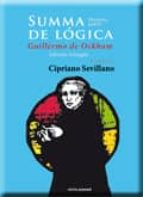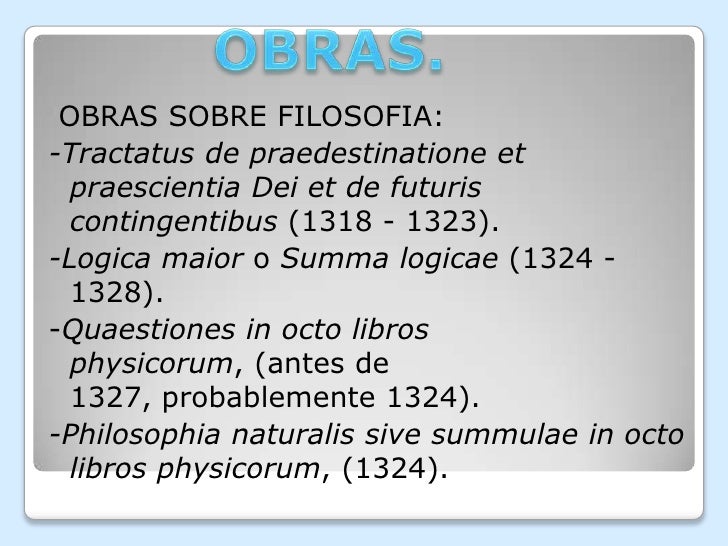
Systematically, it resembles other works of. Freddoso clarifies and summarizes Ockham’s theory, discusses certain philosophical problems what it engenders, and proposes new interpretations for parts of it. The Summa Logicae (Sum of Logic) is a textbook on logic by William of Ockham. This type of analysis plays an essential role in his substantive philosophical and theological works, and in many cases then can hardly be understood without a prior acquaintance with this section of the Summa.Īn introduction by Alfred J. He also illustrates the use of exponential analysis to deal with propositions that prove troublesome in both semantic theory and other disciplines, such as metaphysics, physics, and theology. 17 On the two types of demonstration: a priori and a posteriori Now that we have briefly discussed the terms and propositions that are relevant to demonstration, what remains is to talk about demonstration itself.
SUMMA LOGICAE WILLIAM OCKHAM PDF PDF
As you have access to this content, a full PDF is available via the ‘Save PDF’ action button. William Ockham Summa Logicae III-2, chap. This page was last edited on 26 February 2021, at 15:20 (UTC). William of Ockham, Summa logicae, Paris 1448, Bologna 1498, Venice 1508, Oxford 1675.

Unde, universaliter, quando per aliquam scientiam evidenter cognoscitur aliqua conclusio et non. Download as PDF Printable version A singular term is a paradigmatic. Loux, University of Notre Dame Press, Notre Dame and London1974, pp. 21 Google Scholar OPh 1.539540: ‘ dicitur una scientia subalternans et alia subalternata quia scientia subalternata cognoscit conclusionem, scientia subalternans scit principium universale illius conclusionis. His discussion includes what he takes to be the correct semantic treatment of quantified propositions, past tense and future tense propositions, and modal propositions, all of which are receiving much attention from contemporary philosophers. Ockhams theory of terms, Part I of the Summa logicae, translated and introduced by Michael J.

In this work Ockham proposes a theory of simple predication, which he then uses in explicating the truth conditions of progressively more complicated kinds of propositions.

Ockham's Theory of Propositions: Part II of the Summa Logicae William of Ockham


 0 kommentar(er)
0 kommentar(er)
